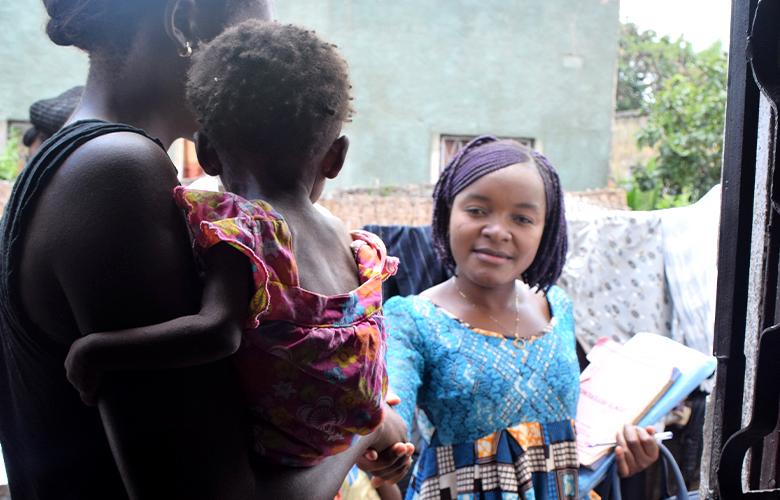
World Health Day (April 7) is especially poignant this year as the global community comes together to focus on fighting the COVID-19 pandemic. However, the effects of the pandemic reach beyond the immediate disease—particularly for the most vulnerable people around the world. The need for social distancing is also impacting health workers’ ability to deliver critical services to people living with HIV. The project I direct in the Democratic Republic of the Congo (DRC—the USAID-funded Enhancing Services & Linkages for Children Affected by HIV/AIDS (ELIKIA) program—is feeling this disruption acutely.
Only a few weeks ago, our team of more than 60 dedicated case managers were conducting home-based check-ins to monitor child well-being for orphans and vulnerable children (OVC) and their caregivers, to ensure that HIV-positive family members were adhering to treatment regimens, and to deliver valuable counseling and psychosocial support. Now, our team is implementing a rapid and full transition to a phone-based case management system for conducting virtual home visits.
Phone-based case management is a logical response for our program. Our staff have been trained on how to conduct phone-based visits for vulnerable, HIV-affected households, and many case managers are already conducting them with families whose circumstances have stabilized over the past two years. It also allows us to deliver health information about COVID-19—including how to prevent transmission and the risks the infection poses—while modeling important social distancing practices.
However, phone-based care is certainly not perfect, and we are concerned that this form of care will be less impactful than in-person visits. We are also trying to find ways to serve families that do not have access to a mobile phone. One potential benefit of this form of telehealth, however, is that our case managers may be able to reach households more frequently. Time that used to be spent on travel to different communities can now be spent on the phone, checking in on children and families.
Everyone associated with ELIKIA is waiting to see how the pandemic will affect daily life in the DRC. (As of this writing, there have only been a handful of COVID-19 cases reported in the country.) But regardless of the trajectory of COVID-19 in the country, it is essential that we continue to monitor and support children and families who are living with HIV. They will still be coping with the virus long after the need for social distancing has passed. Until then, phone-based support can be a valuable lifeline.
| Alisha Keirstead is a project director and senior business development advisor for EDC’s global health team, working in the areas of HIV, orphans and vulnerable children, and adolescent sexual-reproductive health programming. |

Comments
Add new comment